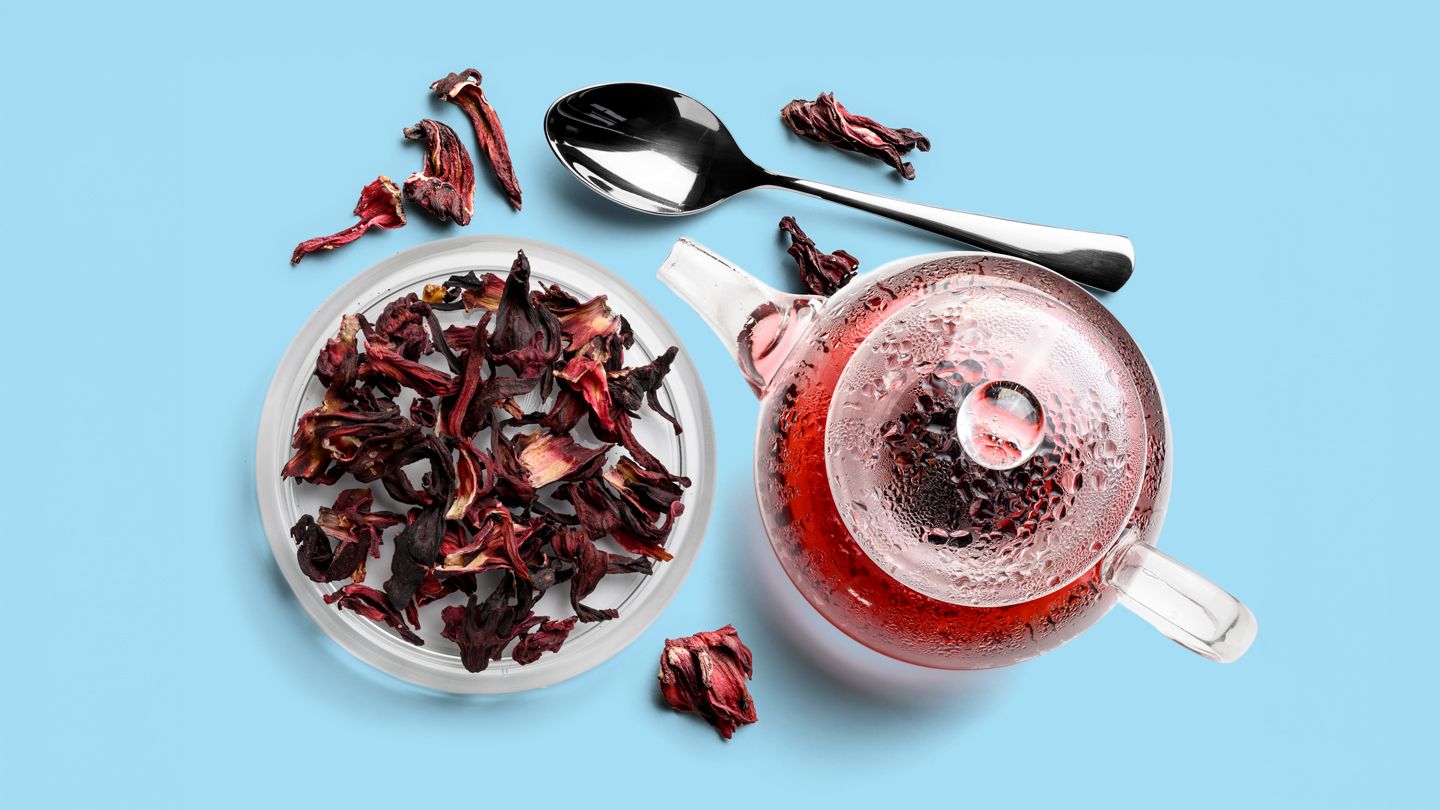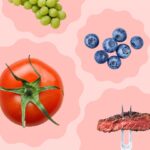Hibiscus Flowers
Many hibiscus species produce bright red flowers. The fresh or dried calyxes, or protective outer whorls of these flowers, are made into hot herbal infusions or cold beverages with a sweet, tangy flavor in a variety of countries, according to a study published in April 2022 in the journal Pharmaceuticals.
Teas sold by the bag are most common in the United States. You can also find iced, sweetened agua de Jamaica in Mexican restaurants, and sorrel, which is a sweetened hibiscus infusion mixed with spices and served cold, in Caribbean eateries.
Medicinal properties of hibiscus flowers and leaves include reducing inflammation, lowering blood pressure and cholesterol, stimulating weight loss, and supporting liver health, according to Cleveland Clinic. Hibiscus also contains antioxidants, including beta-carotene (vitamin A), vitamin C, and anthocyanin, a plant pigment.
Impact on Estrogen
The specific estrogen-like element of hibiscus is still unknown. But research suggests that hibiscus has the ability to mimic or enhance estrogen in the body, according to a study published in July 2020 in the journal Biomedicine and Pharmacotherapy. Hibiscus contains phytoestrogens, or plant-based estrogens.
Another study published in June 2023 in the journal Plant Foods for Human Nutrition looked at rats without ovaries. The study indicated that hibiscus extract lessened the negative effects of the ovary removal on the rats’ memory function. The authors suggest that more research should be done on using hibiscus as an alternative to synthetic hormone replacement therapy in menopause.
Hibiscus Root
The roots of the Hibiscus sabdariffa L. shrub can potentially fight cancerous tumors, according to research published in October 2024 in the journal Vegetos. And the roots of the Hibiscus rosa-sinensis Linn. shrub have long been used in traditional medicine, according to research published in May 2022 in the International Journal of Health Sciences. In Malaysia, they’ve been used to treat sexually transmitted infections and fever. In Nepal, they’ve been used as a cough treatment. And in India, they’ve been used as an abortion drug.
Recommendations
Various parts of the hibiscus plant have been used in traditional medicine as a form of birth control for thousands of years, according to a research review published in June 2021 in the journal Frontiers in Pharmacology. And scientific studies provide evidence for its effectiveness.
Women who are pregnant should play it safe and avoid drinking hibiscus tea, according to Banner Health, a healthcare system in Arizona. It can cause miscarriage or make it harder to control blood sugar levels during pregnancy. The effectiveness of using hibiscus products as a form of birth control has not been compared with conventional methods in research. So, opt for birth control that has been approved by the U.S. Food and Drug Administration to prevent pregnancy.
Read the full article here




